Mother Nature can halt 475-HP Durango
Filed under: Weekly test drives, Autos
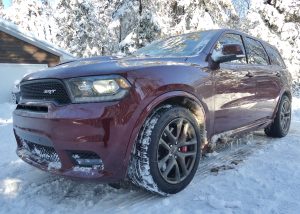
A 475-horsepower 6.4-liter Hemi makes the 2020 Durango SRT go through everything — except , maybe, a 29-inch blizzard.
By John Gilbert
In ordinary circumstances, getting the chance to test-drive a new Dodge Durango SRT would be a fun, light-hearted adventure — big SUV, macho look from every angle, a look supported by SRT suspension, interior, wheels and engine. Especially the engine.
We’re talking Dodge’s legendary 6.4-liter Hemi V8, basically the same engine that powers the overpowering Charger and Challenger members of Dodge’s hot-rod car collection. In the Durango, the engine is detuned a bit, by losing the supercharger and configured to send power to all four wheels in its all-wheel-drive layout. Calling it detuned seems unfair, unless you’ve driven the supercharged Hellcats, because nearly 500 horsepower is nothing to growl at.
The Durango still gets tuning from the SRT specialists, and it hits the road with 475 horsepower and 470 foot-pounds of torque. As you can imagine, that sort of power sends the Durango off and running with the power of a sports sedan, and the thrust of a dragster.
Going back to my original premise, though, it would have been just fun and roaring under ordinary circumstances, but on Thanksgiving week in Duluth, Minnesota, there was nothing ordinary about anything. First came an 8-inch snowfall, in the form of a blizzard blown by winds off Lake Superior. Two days later, the “big” storm hit. This one started off in Southern California and carved a wide but artistic swath across the Midwest, finally reaching its target at Lake Superior. The swirling winds hit 58 mph, and the city got an official 22 inches of snow. Out on the ridge overlooking the North Shore, where we live, we got just a shade under 29 inches from that storm.
This was heavy, moist snow — not the kind that makes for good snowballs, or snowmen, but the kind that feels that each shovelful might break the shaft of the shovel. As it turned out, we were about to venture out after that storm to drive our niece to the Duluth Airport for a 5 a.m. flight, which was delayed to 6 a.m., then 8 a.m., then cancelled, with her trip back home to New York switched to United via Chicago. We were ready to go, because I was going to be behind the wheel of the Durango, and churning through any snowpile we might find would be exciting.
Wrong.
I barreled out through bumper-deep snow in our 100-yard driveway, up and over the outer lip and onto the rural road that runs straight south to the Lake, two miles away. But as soon as I got to the road itself and completed my left turn, the big and powerful Durango was brought to a halt right in the middle of the road. I tried to back up, we just spun. I tried to lurch forward, no go. Fortunately, at 6 a.m. on that Sunday morning, there no other folks were out trying to drive. I slogged back to the house and returned with two shovels, and my wife, Joan, and I went to work.
With no passes having been made by a County plow, the 29 inches made a formidable cover over the entire road. We had pushed enough snow ahead of us as we exited our driveway that it all compressed into a virtual wall that was solid enough to stop us, right in our tracks, with snow halfway up the stylish black grille. The ever-aware electronic sensors notified us that the front sensor was obscured. No kidding. It also warned us of an imminent crash on our right front, but it was only that compressed snow that our sensors mistook for a wall. For most of an hour, we shoveled snow from under the front and rear of the Durango, and from both sides of each wheel, as well as under the vehicle.
I went back to the driver-assist segment of the diagnostic screen, and after looking over 20 or 30 possible settings, I spotted one, next to last, that said, “snow.” I clicked it. Not sure if it made any difference, probably only starting us up in second gear, but it gave me a dose of confidence, and I finally was able to coax the big beast, by gently rocking forward and back a dozen times, and we edged ahead. Once we got a tiny bit of momentum I was happy we were on top of the hill, heading down.
The wonderfulness of all the bucket seat comfort and gadfgetry — including dragstrip launch control for the heavy-duty 8-speed automatic — was relegated to the back burner as we drove the two miles, with total whiteout conditions giving us no idea of where either side of the road might be. When I got down to the freeway, nobody was coming and I pulled out confidently, because surely the freeway that now makes up Hwy. 61 would be plowed.
Wrong again. I pulled out to where the lane should be and turned right, and spun 90 degrees, coming to rest sideways. Again, with nobody coming, I calmly straightened out and advanced, realizing that a freezing drizzle that hit first had formed a smooth and slick coating under those 2 feet of snow.
There had been no plows reaching any streets except maybe four main ones, and I guessed right about which ones they might be as I climbed the hill and headed for the Duluth airport. We got there at 8 a.m. and were not surprised that the 8:05 flight had not left, because it had been cancelled. At least we could get breakfast before the 10:50 flight. Wrong again. Nobody who worked at the Duluth Airport restaurant had made it to work. Nor had anyone made it to operate the Delta desk.
Since our niece’s flight had been cancelled, Delta had rebooked her on a United flight to Chicago and then LaGuardia — but that flight was also cancelled. As the line lengthened at the United counter, a nice young woman wearing the weather-proof suit of a gate attendant came by and said she would try to help people get rebooked via Delta. Her name was Elena, although I can’t be sure of the spelling. I’ve had some excellent service from desk folks at Delta at the Duluth Airport, but never one as accommodating, friendly, and effective as Elena, who managed the magical rebooking, and got the change-of-carrier fee waived as well.
So our niece was on her way, with no further adventure. We, however, had to get back home, after trying unsuccessfully to find any of our favorite breakfast places that might be open. We were 0-for-6 before we called the Boat House in Fitger’s Hotel. Great spot, and they were open. We got home and I parked the beautiful metallic red Durango by our mailbox, out on the road.
Our other project to complete before all that on Thanksgiving Weekend was to get our son, Jack, on his way back to the Twin Cities. We had gotten him a good pair of tires to put on the front of his Mazda6, but we hadn’t been able to find anyplace that would mount them, and we didn’t want him to drive back on the old tires. That, however, is a separate story by itself.
Our test-drive Durango began life at $62,995, but loaded up with all the high-end features that an SRT commands, the sticker was $73,060. It did handle all the marginal tunnels that used to be streets for the next few days, just as it had breezed through all the pre-snowstorm driving, which showed off its impressive stability and handling devices were outstanding, including the steering wheel paddles allowing manual control of the 8-speed.
The know-all sensors and computer stuff went beyond the norm. For example, at one point, a note flashed onto the screen where the audio and phone records had been and it notified us that a blizzard warning had been issued for Lake and St. Louis counties. We’re in St. Louis County, and such tips are invaluable, considering how many strange twists and turns of weather can occur near the big lake. We were just unprepared fir getting the notification from our vehicle.
By the time our venture through the the big snowstorm ended, and the big plows came by on our road, our neighbor, Greg, had saved us from what would have been a half-day of shoveling. Greg has a snow-blower and an all-terrain vehicle with a plow, and he is an artist with both. And he used both, one to do the preliminary work and the other to polish it off.
If the Durango has almost everything, my only suggestion might be for Dodge to add a plow. That would only make it a fair fight, because we could have blasted our way out of the driveway and down the road with 475 horsepower plowing 29 inches of snow in all directions.
PERFECT TIMING, PERFECT NAME
Meanwhile, back to our other storm-weekend task. A lot of service outlets in the Duluth area were closed for the Thanksgiving holiday, and on through Friday and the long weekend, and I can’t blame them. Those that weren’t closed, did close after the big snowstorm hit us. Finding a shop where we could get our two nearly-new Goodyear allseason tires mounted for our older son, Jack, was like a perfect holiday story that he couldn’t find anyone at a shop capable of mounting them on his wheels.
If this was a movie, we would now need a flashback, to several years ago, out in Los Angeles, where a fellow named Donnell Kelly decided to move his family to accommodate his real estate business. Somehow, after a stop or two along the way, he somehow found is way to Duluth. He decided to open a service outlet in West Duluth, way out on 69th Avenue West and Grand Avenue, near the Duluth Zoo. It’s not a fancy place, and he named it “Good Timing.” That’s a great name for a place that tunes engines — setting the timing just right — and does everything else, too, from engine tuneups to overhauls. On social media, numerous customers had given the place glowing reviews.
We called, and Donnell said he was extremely busy, but he’d mount the tires if we could leave the Mazda6 there for a few hours. We drove the required 25 miles to get there and found a basic, simple shop, and a lot lined with cars. A lot of cars could mean slow service, but slow service leaves you with few, if any, customers. A lot of cars means you do good work, which attracts more customers seeking good work at reasonable prices.
Donnell was in the office, down at the end of the place. He told me he does honest work, and knows that sometimes people come through traveling and are desperate to get work done and be on their way. That’s the way it is with tires, too, he said. When people need tires mounted, it’s not a big profit thing, but he knows it usually means desperation for someone on a trip, so he stays open past his 5 p.m. closing time so his five-man crew can accommodate those people.
“I tell people what their car needs, and that’s what I do,” he said. “I’m honest, and that means I can go home and sleep soundly every night, because I know we’ve done an honest day’s work. We close at 5, but if I tell someone we’ll get it done, we’ll stay as long as we have to to get it done.”
We came back at 5 and got Jack’s Mazda6, and the next day, he was all set to drive to the Twin Cities, on the Saturday when the storm started and then hit in full fury. Jack drove southward about 25 miles and turned around at Cloquet to come back to our home on the North Shore. We worried because it took him about an hour and a half to get back. Turns out, he stopped to help a fellow who had driven off Interstate 35’s whiteout shoulder.
That’s my kid. Always willing to help someone who needs it. Maybe Donnell could use another honest, good samaritan.
Arteon poised to lead VW resurgence
Filed under: Weekly test drives, Autos
By John Gilbert
It wasn’t a long trip, just a short jaunt on an interstate near Duluth, Minnesota, but immediately my wife, Joan, and I realized we had found something new to like about the car, beyond its great looks and refined interior comfort.
It was smooth. Not just non-bouncy smooth, but luxury-car smooth, as we headed up the North Shore of Lake Superior totally at ease and with an added blanket of security from that smoothness. A sort of quiet, uninterrupted feeling of a peaceful commute.
This is not to say that the Jetta, or Passat, isn’t smooth, but the 2020 Arteon is my new favorite in the whole VW array.
Volkswagen is in the midst of deciding on its variety of cars with which to try to pump up its numbers in the United States. We hear that the specialty GTI and Golf R will be coming in, but not the normal, garden-variety Golf. We are certain the Jetta will be sold here, and it has proven to be a popular, economical 4-door compact. The larger Passat also remains. Along with the various SUVs, Volkswagen seems to have all the angles covered, and the Arteon replaces the CC, which was a breakthrough with its 4-door-coupe styling a decade ago. The Arteon retains that same silhouette, covering a roomy rear seat and an enormous trunk..
VW also has provided some of the biggest news in the realm of auto shows, because it has shown frequent views of the Golf-e, VW’s new pure-electric vehicle that will take care of the zero-pollution end of it, and talk is that Volkswagen will build the EV at a new wing on the plant in Chattanooga, Tennesee.
The Arteon, however, has the chance to give the company a near-luxury sedan that can compete with anybody else’s full-luxury cars. With a 2.0-liter 3-cylinder, an engine with endearing popularity as the engine that makes the GTI the “hot hatch” icon of the industry.
Even though the Arteon is quite large and spacious, the potent little 2.0 can handle it. The test car, in a gleaming black that showed off its artistic grille in high-contrast perfection, has enough power to easily make the Arteon perform like a sporty sedan, even though your neighbors will be convinced you’ve gone upscale to a luxury car.
With direct injection and a turbocharger, run through steering wheel paddles is you want to shift the 8-speed automatic by hand, you are somewhat surprised that such a comfortable, roomy sedan can switch personalities in a flash. It also came with 4-Motion, Volkswagen’s highly efficient all-wheel-drive system, and you can play with the driving mode switch to set yourself up for economcal, or comfort, or sporty settings.
Lexus crossovers cross over, add technology
Filed under: Equinox, Weekly test drives, Autos
By John Gilbert
As we gravitate — some would say “hurtle” — from sedans to SUVs for our vehicles of choice, we have now reached a point that obscures the very definitions of those vehicles. Take Lexus, for example, and think about whether you can identify and tell the difference among the Less RX, the Lexus UX, the Lexus GX, the Lexus NX, and the Lexus LX?
I didn’t think so.
On the off-chance you can, then let’s add in the Lexus GS, Lexus ES, Lexus IS, Lexus LS, Lexus LC, and Lexus RC. The above group are all, officially, SUVs, while the lower group is made up of cars.
We are not here to discriminate about model nomenclature, though. We’re here to describe a couple of them and how the compare, if it’s possible to differentiate. First off, Lexus is the upscale or luxury segment of Toyota, and nearly all Lexus models began life as a fancy version of a more mainstream Toyota. As years passed, Lexus got more of the upscale stuff, while Toyota absorbed the more mainstream and less expensive equipment.
I had the chance to road-test a couple of these vehicles, for a week each, and they came back to back. First came the 2020 Lexus NX 300 F Sport , a compact SUV, painted Cadmium Orange, a rich but flashy color that exacts a $595 addition to help push the base price of $40,360 to a final sticker of $51,910. Next came a 2019 Lexus IS 350 AWD sedan, painted Ultrasonic Blue Mica — also worthy of a $595 option price, helping boost the base price from $44,095 to $51,875.
Imagine that! With all the features and add-ons, these two vehicles wind up $35 different, even though they are intended for different worlds of driving. Or, are they? Both are all-wheel drive, both have different but potent engines, different transmissions, and both are F-Sport variations with firmer suspension and special features, with one being a low-slung, sporty 4-door sedan, and the other being a quite-sleek compact crossover SUV, also with four doors, and raised a bit for added room and stature.
Here’s my point: If you live in a rural area in snow country, where the county might plow your road in a day or so, you might want the slightly higher stance of the NX 300; if your driving is mostly or all on well-maintained paved roads and you favor a sporty flair to your driving, the IS 350. Both have all the anticipated contemporary safety features, with lane departure warning and assist, rear camera, blind spot monitor, etc.
An interesting evaluation would indicate the SUV handles like a sports car, and the sleek sedan has some of the capabilities of an SUV.
TC Auto Show to feature Truck Summit
Filed under: Equinox, Weekly test drives, Features, Autos, Uncategorized
By John Gilbert
If you are able to attend any of the world’s major auto shows — such as Frankfurt, Geneva, Paris, Japan, or the Big Four in the U.S., Los Angeles, Chicago, New York and Detroit — the magnitude is amazing. But that doesn’t mean the smaller population centers are any less intense in their interest. And most of them aren’t that small.
That interest in Minnesota will ride a new idea, armed with an impressive economic impact study that shows the auto show may have a financial impact on the region of $19 million every year, with a nine-day run that makes its earnings greater than the Super Bowl or the Final Four.
If you don’t care about the huge congestion at the Big Four shows, you might be able to calm down and enjoy the Twin Cities show., which runs from March 7-15.
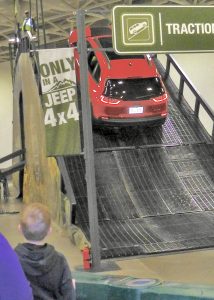
A young enthusiast was mesmerized watching drivers take on the Jeep off-road demonstration at the Twin Cities Show.
My fondest memory of the Twin Cities Auto Show came a few years ago, while taking a pre-opening run through the displays at the Minneapolis Convention Center. There was a Jeep display, where a huge hill had been formed and rides were given to show how steep an incline, and descent, the new Jeeps could handle, which was better than some state fair thrill rides. As I watched the demonstration, there in the foreground was a kid, exactly the kind of kid who might spend his spare time playing with a model truck in his backyard sandbox, and he stood there, transfixed as he gazed at the Jeep going up and over.
That was a couple years ago, and I should have realized then exactly why our country, and particularly our state, had started on a transition from cars to trucks.
It has happened, of course. And when the Twin Cities Auto Show opens March 7, 2020, the focus will be on its Truck Summit on March 6 to break down the reasons for the shift.
There are a lot of other significant vehicles that will fill the huge site, with particular emphasis on the emerging electric car phenomenon that could change the world’s auto industry. But there also will be dozens of trucks, from Ford, Ram, Chevrolet, Toyota, Nissan, Honda for pickups and all the newest SUVs and crossovers being shown by virtually all manufacturers.
We are fast closing in on the start of the U.S. major auto show season, which begins later with the Los Angeles show in late November, and continues with Chicago in February, New York in April, and Detroit in June. The Detroit date is the major departure, because it always has been in early January, but has shifted to summertime.
A lot of people in the auto industry are curious and anxious about that shift, moving the traditional mid-winter Detroit exposition to summer, and the anxiety is because a number of hard-core auto observers are concerned that the once-heralded major shows have faded in the intensity of interest by both auto makers and consumers. The question for us in Minnesota is, where does all that leave us, here in flyover land?
Mini tradition endures, even in “Maxi” form
Filed under: Weekly test drives, Autos
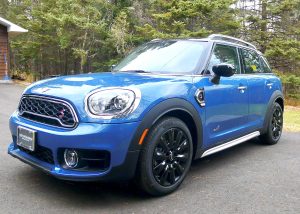
The 2020 Mini Countryman is larger and more powerful but proved its kinship with our 2007 model during an impromptu road-test.
By John Gilbert
Ever since I was a little kid, our family gave our cars nicknames. Betsy is the one I remember best, for a sturdy old 1946 Dodge . Since then, I’ve always had relationships with cars I’ve owned, some great, some not so great. For the last 10 years, however, the most memorable car we’ve had has been a little red 2007 Mini Cooper.
It has been so loyal, trustworthy, and dependable, it could earn a Boy Scout endorsement. I last wrote about how it carried my wife, Joan, my older son, Jack, and me home from the Twin Cities airport through the worst overnight blizzard of the winter, to the safely and securrity of the Gilbert Compound, up on the hill just up the North Shore of Lake Superior from Duluth. The joke was on us, to a point, because I couldn’t readily see the tiny switch on the other side of the floor shift lever and was unaware the switch indicated that the traction control was off. I just thought the icy undercoat of all the snow made our trek extremely slippery and hazardous. All the way from the Twin Cities, slithering around on the freeway in whiteout conditions, my adrenaline on red-alert, and we made it! Imagine how easy it would have been had the traction control been turned on!
I’ve test-driven a couple of Mini Coopers in the decade since we bought that Mini with only a few miles on it, and I’ve been impressed. The 2007 model came out a year after BMW had taken ownership of the proud marque and smoved its production to Europe, with a BMW 4-cylinder.My wife, Joan, has pampered that car, hand-washing it to be put back in the garage. Next time I see it, she’ll be hand-washing it again. It took a lot of convincing to get her to allow regular or mid-grade gas into it, instead of the premium she prefers.
As it turned out, our 2007 Mini secured for us a few days in a 2020 “Mini Cooper S Countryman, ALL4,” courtesy of Motorwerks BMW in the Minneapolis suburb of Golden Valley. There is no dealership in Duluth, so we make periodic trips to Motorwerks when we need to give our Mini factory scrutiny, if it can’t be handled by Foreign Affairs in Duluth. We didn’t want to leave our Mini with a babysitter, even a factory-supported babysitter, but we agreed to swap it for a 2020 test-drive for a few days. Here’s why:
The Mini has the weird little electronic ignition switch and door key. You hit the tiny edge of the key fob to unlock or lock the two doors, and then you insert the fob into a little slot on the dash, next to the push-button to start the car. Or shut it off. Our key fob has taken a beating over the decade, and we only had one.
Joan, who does most of the Mini driving because I’m usually in test-drive vehicles, also likes to do work around outside our rural hilltop home, and she was digging around one day in July and got some honest dirt on her jacket. When she came in, she tossed the jacket into the washing machine with the next load. Came out clean as a whistle. And so did the Mini key fob, which happened to still be in the pocket of her jacket.
We agreed that going through the washing cycle was probably not on the list of accepted maintenance tricks for that key fob. Joan carefully dried it out, opening it and using a hair dryer, and bought it a new tiny battery, and we tried it. Hitting the little switch made a meaningful click, but would not unlock the doors or the hatch. it would, however, start the car. Strange. When we hit the lock part of the switch it worked. Too well. We stood there, marooned, with the key fob in hand and the Mini parked in the garage in its well-scrubbed red paint, and its doors and hatch locked. We had no choice but to ultimately call AAA. Impressively, they had a fellow at our garage door within minutes, and he pried his way to slightly open the window and reach a long rod inside the Mini to unlock the door.
Then we found a quirk in the Mini’s personality, fortunately when it was still warm enough outside that we had the driver’s window open. If you very carefully left the doors unlocked, when you walked away it might lock itself. We left the driver’s door window open 4 inches so we could reach inside without calling AAA again. You might even hear it click from 30 feet away, and feel thankful the window was slightly open.
We also knew we would have to get set up with a reconfigured or new switch, so we tried everywhere, but everyone told us it could only be done at a Mini dealership. We made an appointment at Motorwerks, which I had to cancel, and they said not to worry, we could just drive up and have it taken care of.
It became our ritual to leave the driver’s side window down those 4 inches — just enough to fit my forearm through to reach in and unlock the door with the inside latch. We figured we would have the switch reconfigured, but it wasn’t that easy. To reconfigure the key, we had t0 go to a dealership, and have your title, driver’s license, credit card, and all the meaningful information required to, I suppose, change citizenship or travel to Canada and return some day. We had a section of old carpeting we carried on the floor of the back seat, so that if it rained, I could drape the grippy bottom of the carpet piece on the roof and let it hang over the open part of the window to keep it dry inside. You could drive it anywhere, but if you closed the window, you realized the importance of reopening it before exiting. So we fixed a little stick-on note onto the door as a reminder.


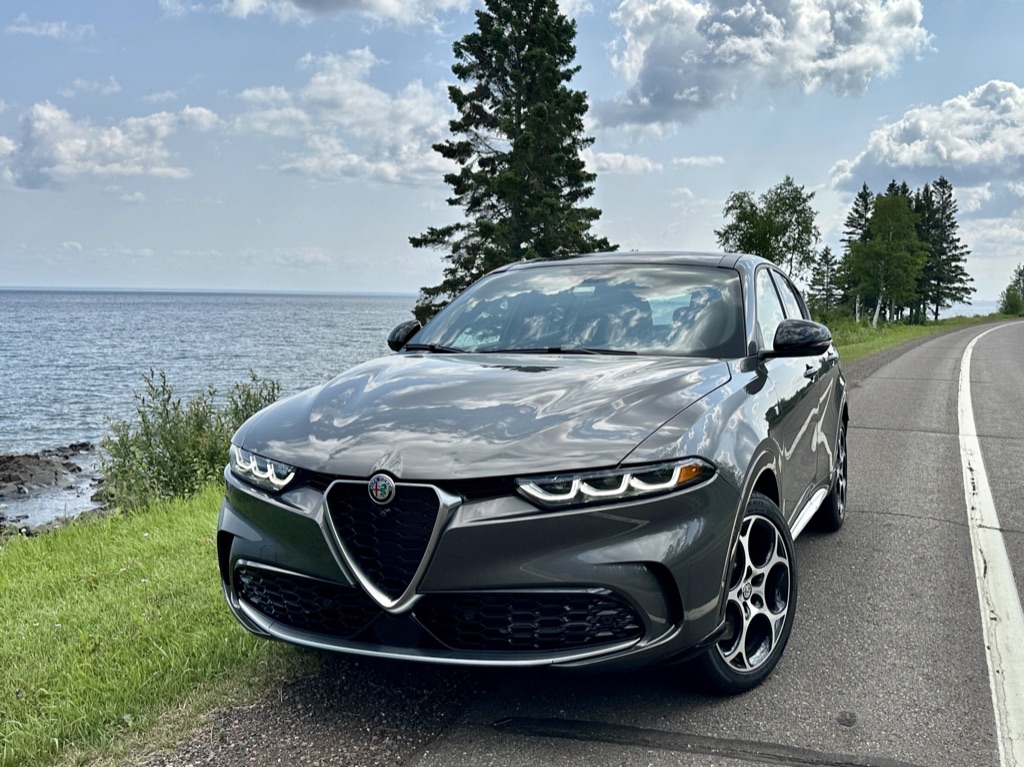

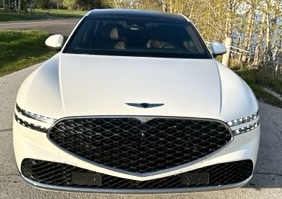
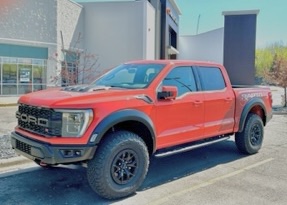
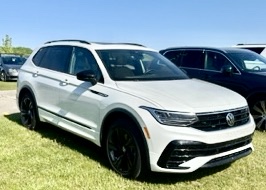
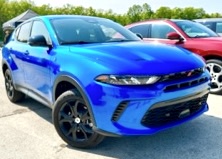
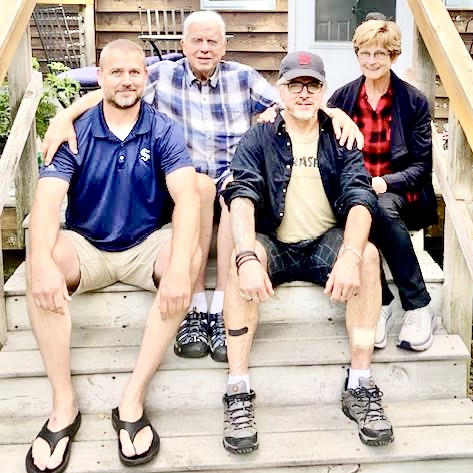
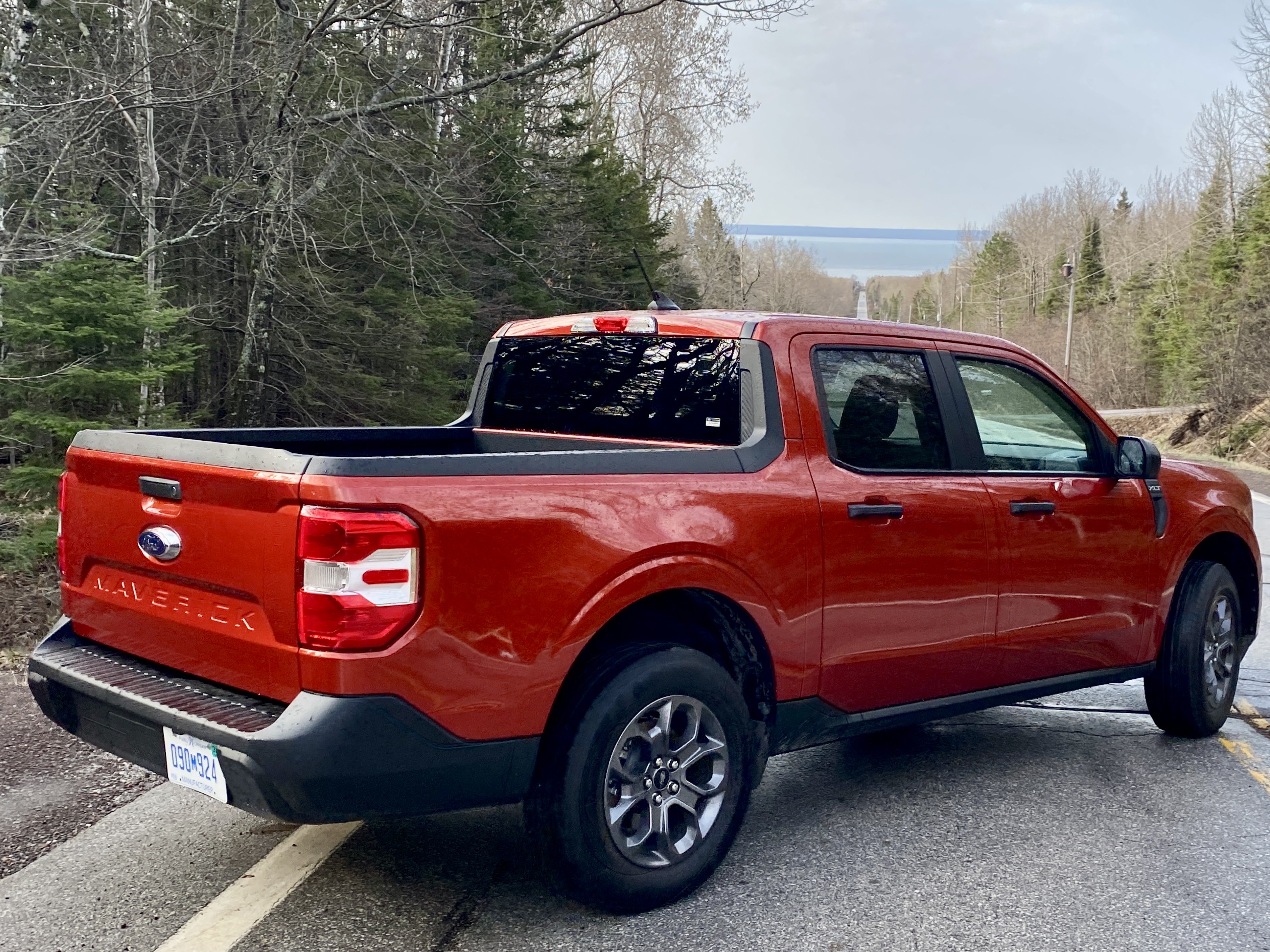
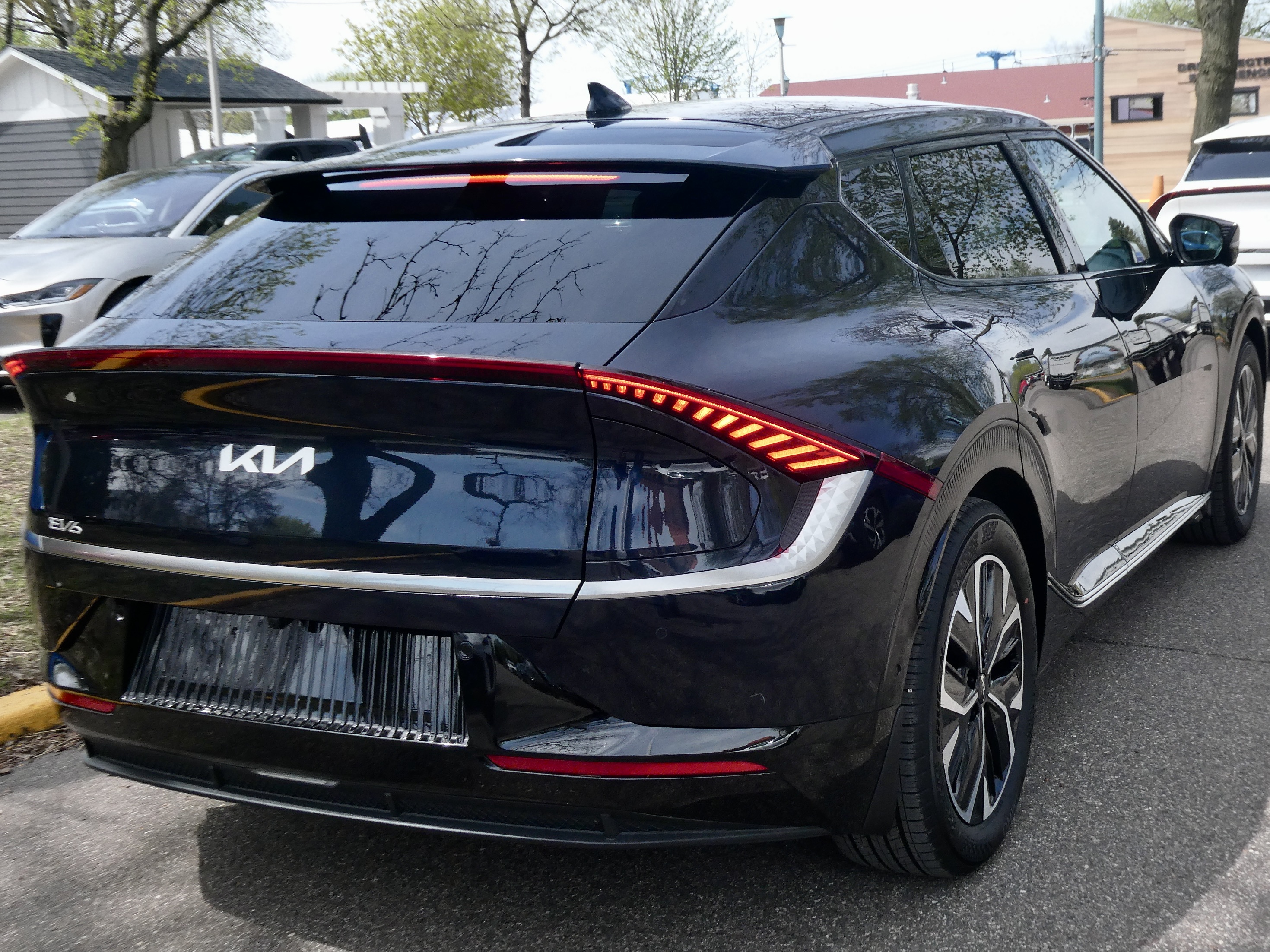
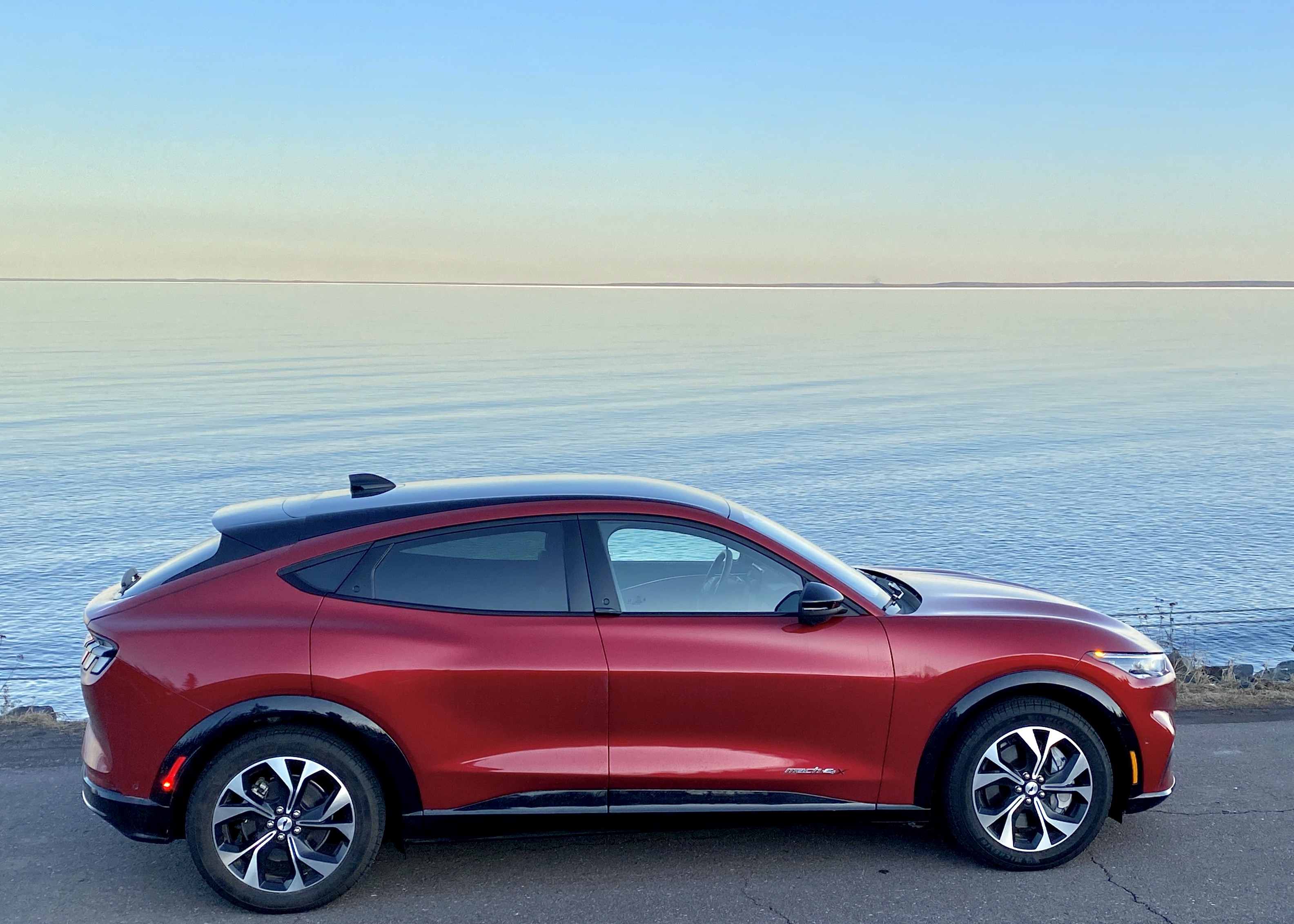
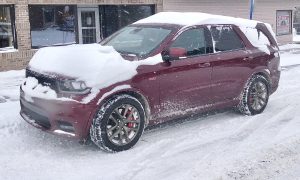
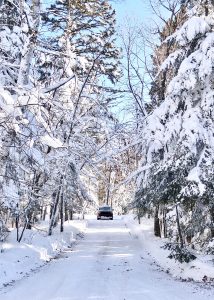
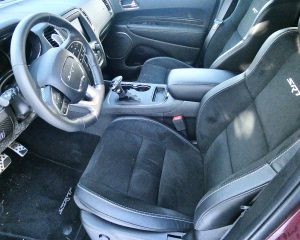
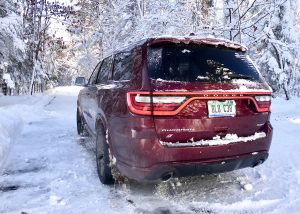
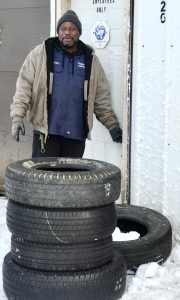
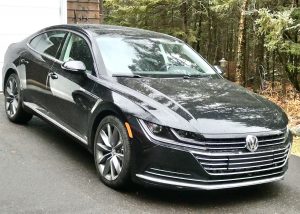
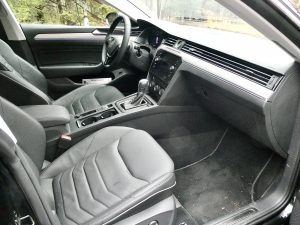
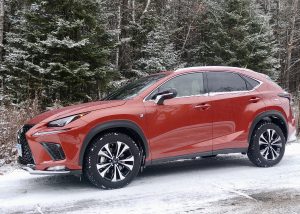
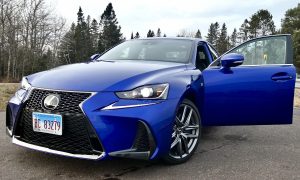
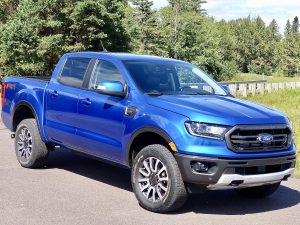
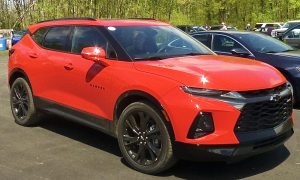
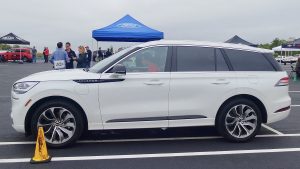
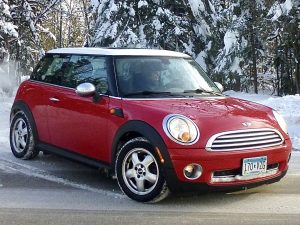
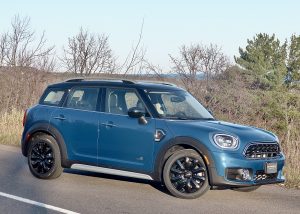
 John Gilbert is a lifetime Minnesotan and career journalist, specializing in cars and sports during and since spending 30 years at the Minneapolis Tribune, now the Star Tribune. More recently, he has continued translating the high-tech world of autos and sharing his passionate insights as a freelance writer/photographer/broadcaster. A member of the prestigious North American Car and Truck of the Year jury since 1993. John can be heard Monday-Friday from 9-11am on 610 KDAL(www.kdal610.com) on the "John Gilbert Show," and writes a column in the Duluth Reader.
John Gilbert is a lifetime Minnesotan and career journalist, specializing in cars and sports during and since spending 30 years at the Minneapolis Tribune, now the Star Tribune. More recently, he has continued translating the high-tech world of autos and sharing his passionate insights as a freelance writer/photographer/broadcaster. A member of the prestigious North American Car and Truck of the Year jury since 1993. John can be heard Monday-Friday from 9-11am on 610 KDAL(www.kdal610.com) on the "John Gilbert Show," and writes a column in the Duluth Reader.